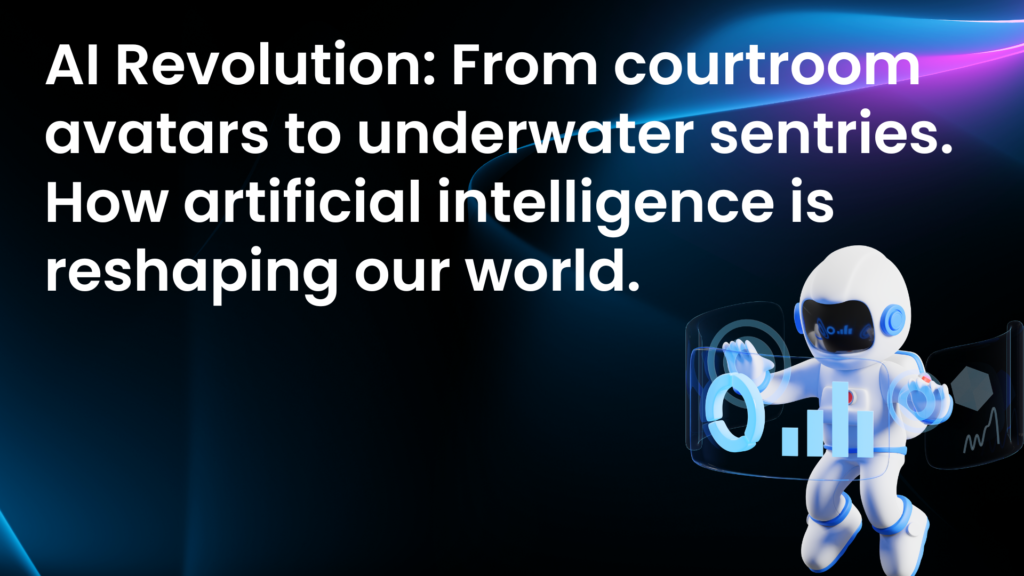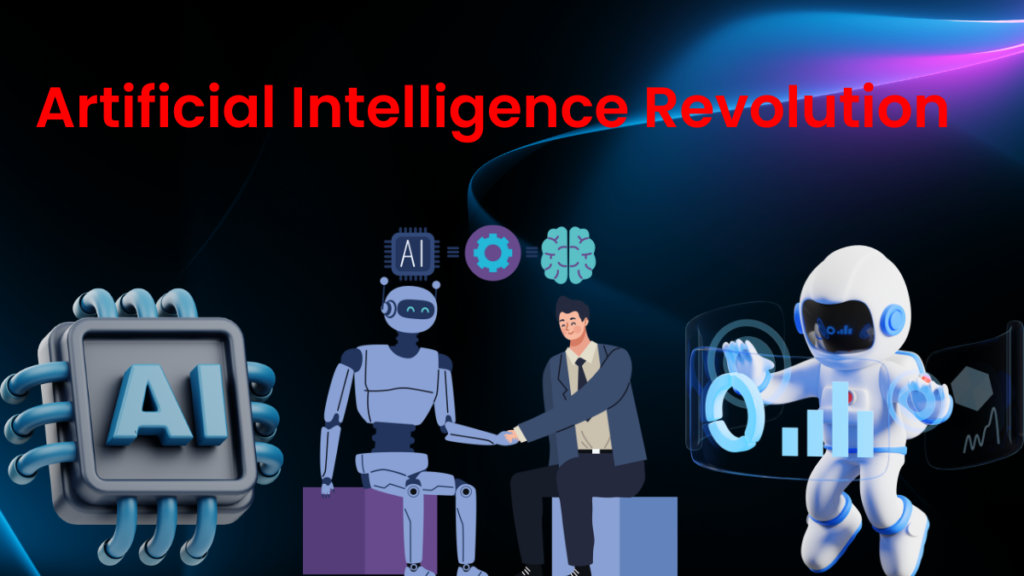Here we are going to study that how AI Revolution is transforming our world: Anduril’s underwater AI sentries boost naval defense, brain implants restore speech after strokes, and GPT-4.5 now fools humans in conversations. H&M’s AI models spark job fears, while China mandates AI education in schools. From courtrooms to classrooms, AI advancements bring both breakthroughs and ethical challenges as artificial intelligence reshapes society’s future.
Key points

Anduril Unveils AI-Powered Seabed Sentry, A Game-Changer in Underwater Surveillance for U.S. Navy.
California’s own defense tech company, Anduril, has just rolled out the Seabed Sentry, an innovative, cable-free underwater surveillance system powered by AI. This remarkable technology is designed to autonomously keep an eye on the ocean floor for extended periods months or even years while providing real-time data and advanced detection features.
These modular seabed nodes are deployed by autonomous underwater vehicles, aiming to boost maritime awareness and safeguard essential infrastructure from submarine threats. They utilize Ultra Maritime’s Sea Spear for long-range sensing and the Lattice AI platform for adaptable payload integration. With nuclear submarine programs ramping up in China, Russia, and North Korea, the Seabed Sentry could become a vital asset for the U.S. Navy, enhancing underwater threat detection, anti-submarine warfare, and ongoing oceanic surveillance.
Gpt-4.5 fools people in turing tests by mimicking human personas.
A recent study from UC San Diego has revealed that cutting-edge AI models, such as GPT-4.5, are now so adept at conversation that they can convincingly pass for human about 73% of the time. In contemporary Turing Tests, participants frequently prefer the AI over actual humans during five-minute chats, especially when the AI employs a “PERSONA” prompt to enhance its lifelike qualities. Experts suggest that these bots could soon take on roles in customer service, online companionship, and more, prompting us to rethink how we connect in a world increasingly populated by human-like machines.
H & M to launch 30 AI model clones in 2024, sparking job loss fears.
H&M is gearing up to launch 30 digital clones of its models in 2024, with the goal of weaving AI into the fashion world while making sure that models keep their rights and get paid for their likeness. This initiative has stirred up some controversy in the industry, as labor activists are raising alarms about the potential for job losses, which could impact not just the models but also makeup artists and stylists. As other brands like Levi’s and Mango dive into the realm of AI models, worries about the ethical use of AI are on the rise, leading to calls for stronger regulations to safeguard workers’ rights.
Google DeepMind enforces ‘paid limbo’ non-competes to block AI talent from rivals.
Google DeepMind is putting its foot down with non-compete clauses that prevent AI researchers from hopping over to rival companies for a period of 6 to 12 months. During this time, they still receive their full salaries, even though they aren’t actively working. Sources indicate that this “paid limbo” particularly impacts developers associated with Gemini AI, with senior researchers facing even longer restrictions.
This strategy effectively sidelines talent to stifle competition. While non-compete agreements are facing legal challenges in the U.S., DeepMind’s operations in the UK are taking advantage of regulatory loopholes, using financial incentives to keep top AI talent off the market.
Navigating the future of artificial general intelligence and the call for global oversight.
A recent research paper from Google DeepMind raises some serious concerns, suggesting that Artificial General Intelligence (AGI) could potentially emerge as soon as 2030. The paper warns that this development might pose risks that could “permanently destroy humanity,” although it doesn’t go into specifics about how that might happen. Co-authored by Shane Legg from DeepMind, the paper categorizes the risks associated with advanced AI into four main areas: misuse, misalignment, mistakes, and structural issues.
It strongly advocates for a proactive approach to ensure that AI is not used in harmful ways. Additionally, DeepMind’s CEO, Demis Hassabis, has called for the establishment of a global oversight body similar to the UN or CERN to make sure that the development of AGI is safe, transparent, and regulated on an international level.
China to mandate AI education in schools to shape a tech-savvy future.
Starting September 1, 2025, China will require AI education in all primary and secondary schools, ensuring students receive at least eight hours of instruction each academic year. The curriculum will be customized by grade level, focusing on essential concepts, practical applications, and cutting-edge innovations. This initiative is part of Beijing’s larger plan to establish itself as a global leader in AI, with a white paper set to be released in 2025 that will detail policies and objectives for integrating AI education nationwide. This effort is in line with global trends, such as California’s AI curriculum law and Italy’s classroom AI trials, showcasing China’s commitment to nurturing a tech-savvy generation prepared for an AI-driven future.
After 18 years of silence, stroke survivor regains her voice through groundbreaking brain implant.
After being silent for 18 long years because of a stroke, a 47-year-old woman has found her voice again thanks to a groundbreaking brain implant that turns her thoughts into speech in real-time, as researchers shared in Nature Neuroscience. Unlike earlier brain-computer interfaces that had noticeable delays, this innovative device processes speech instantly, utilizing AI to interpret brain signals and recreate her voice from before the stroke with astonishing precision. Scientists are optimistic that this technology could revolutionize communication for people with speech difficulties, with experts hailing it as a significant advancement that might be accessible to many within the next decade.
New York court stops proceedings after plaintiff uses AI-generated avatar in legal argument.
A New York appellate court hit the brakes on proceedings on March 26 when a plaintiff named Jerome Dewald tried to make his case using an AI-generated avatar in an employment dispute. The judge in charge, Justice Sallie Manzanet-Daniels, called Dewald out for not mentioning that the video showcased a digitally created character, labeling it as misleading and not suitable for the courtroom. Dewald later expressed his regret, explaining that he opted for the avatar to communicate his statement more effectively because of some personal speaking challenges, but he acknowledged that he hadn’t given the court a heads-up about its artificial nature beforehand.
